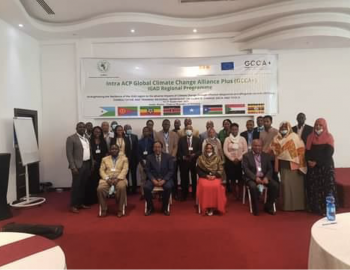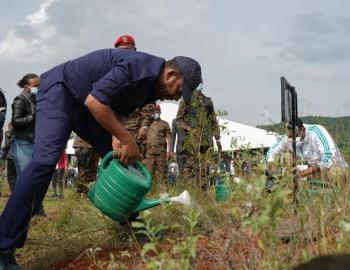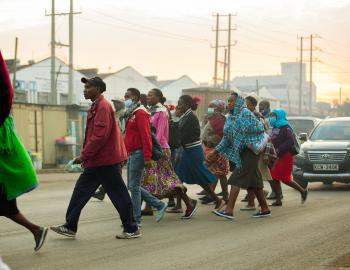Report: Bottom-up climate legislation in Cameroon
Report: Bottom-up climate legislation in Cameroon
To implement the Paris climate change agreement at the national level, countries will have to review existing governance frameworks and develop new rules and regulations. This may result in “top-down” legislation that does not reflect the concerns of particularly climate vulnerable groups and communities. There are opportunities to take more "bottom-up" approaches, as demonstrated in this new report.
Under the umbrella of the African Climate Legislation Initiative (ACLI), The Cameroon Climate Change Working Group organised several stakeholder consultation meetings in Cameroon, with a view to developing a demand-oriented law review and development approach that values the perspectives of affected people and has the potential to be applied in different jurisdictions.
This report summarises the consultation process, outcomes and possible next steps. It does not offer generally applicable findings for Cameroon, but presents a general approach that - with the necessary resources and time - could be employed to organise a societal dialogue on a larger representative scale. The meetings had a standardised format (including focus group discussions and a survey) to elicit the views of participants on priority areas for legislative initiatives on climate change in Cameroon and on the specific features of such interventions.
The participants generally agreed that the negative effects of climate change were increasingly tangible in Cameroon. They considered land use and farming to be the most important sectors for climate-related regulatory interventions. Stakeholder participation and the mainstreaming of climate change responses across all national policies are other relevant areas. The main challenges to successful legislative initiatives included corruption, the abuse of power, limited public participation and the subsequent weak implementation of the law.
Based on the consultations, the Legal Response Initiative has carried out further pro bono legal work. This includes a legal opinion on changing rainfall patterns: an issue often raised by participants. The document addresses how the national meteorological service can proactively make rainfall forecasts available to farmers and landholders. The opinion outlines several options and suggests a revision of existing rules (Article 101 of Decree No. 2005/118) on the organisation of the Ministry of Agriculture and Rural Development, the monitoring of crop related information and early warnings. As the next step, the Cameroon Climate Change Working Group will organise a roundtable dialogue among government, lawyers and civil society stakeholders to discuss this and other legislative proposals.



